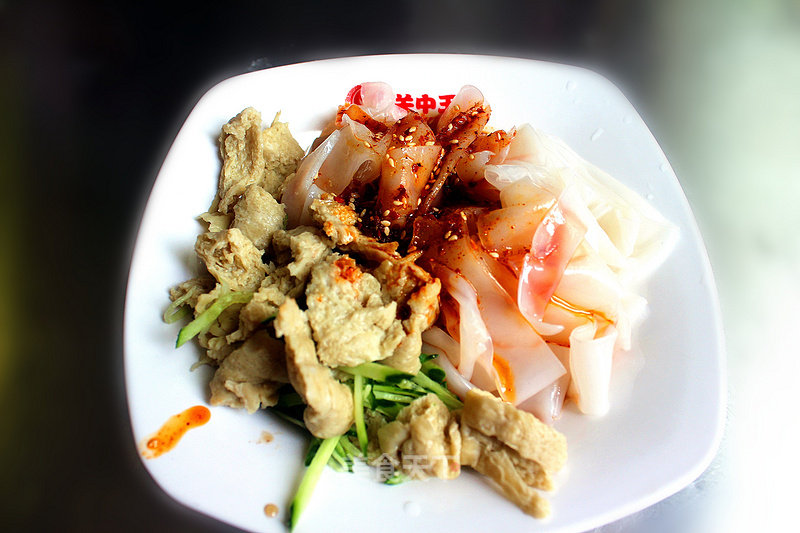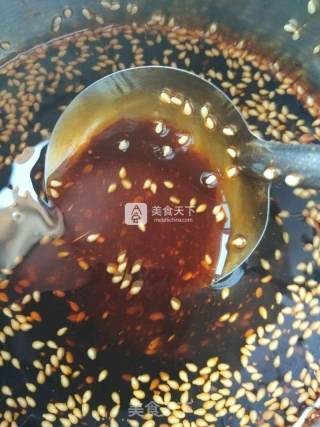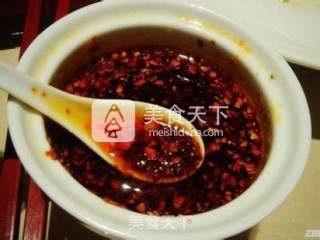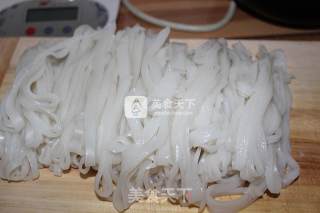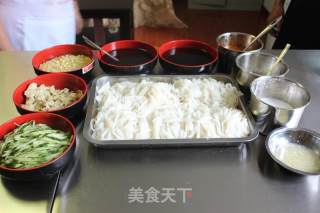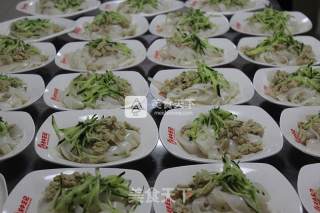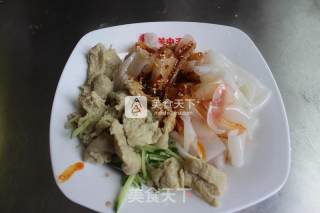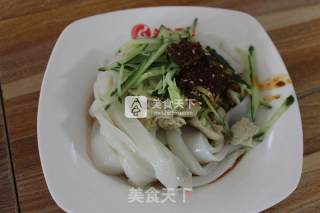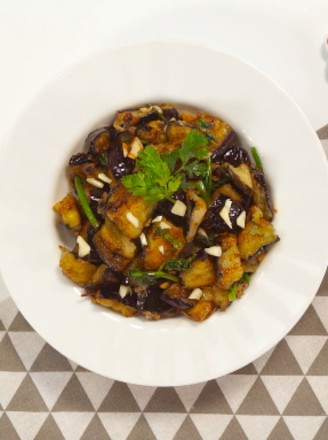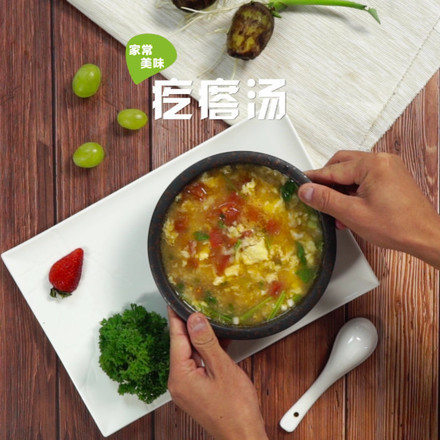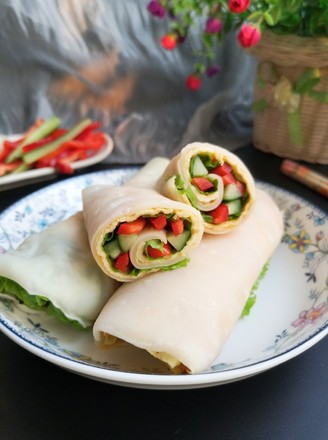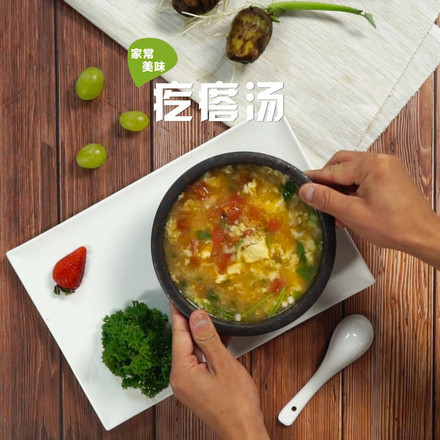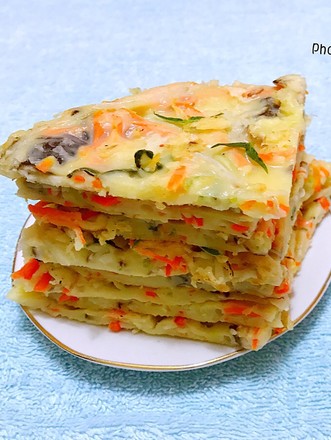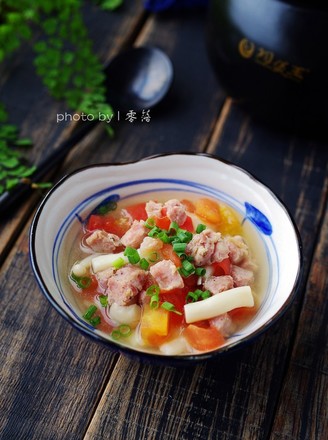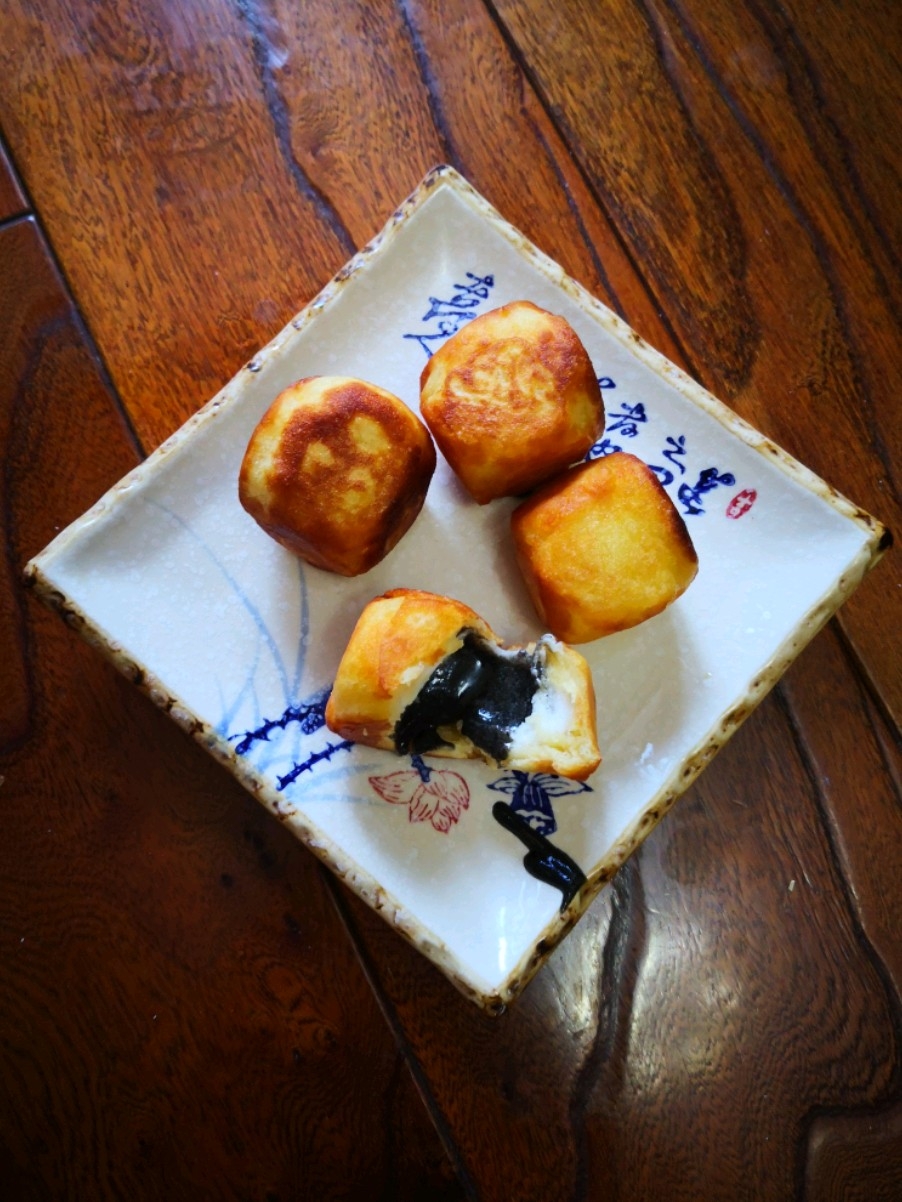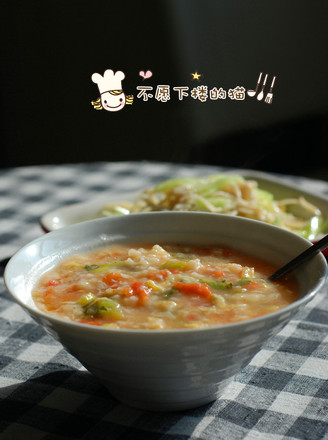The Authentic Method of Shaanxi Liangpi
1.
Kneading the noodles: knead the noodles according to the ratio of 500 g of flour to 230 g of water, wrap the mixed dough in plastic wrap and wake up for half an hour, then put the dough in a large basin and add water to wash the noodles.

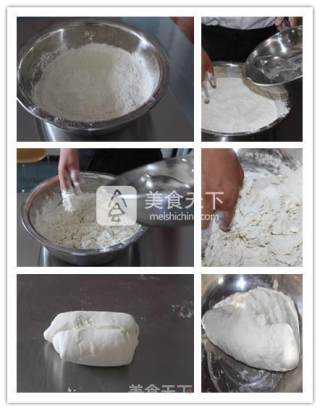
2.
Wash the face: Find a larger basin, pour cold water over the dough, and start washing the face. The details of washing the face; open the palm, straighten your fingers into the left and right edges of the dough, turn the dough in the water, the fingers can be bent, you can not once hold the face in your hand and make a fist (commonly known as grasping face, that is, the eight sides are separated from the fingers Squeeze it out) and drain the face water. When the face water is very turbid, change a basin of water. Don’t pour out the water left over from the previous face wash. Pour it into a large basin and wash the face in water four or five times. At the end of the wash, a little yellowish gluten is left, until the gluten in the face wash has no starch oozing out, the face is washed. The water for washing the face is allowed to settle in a large pot for three or four hours. During this time, do not touch the washing water after it settles. The water on it is clear and the flour has settled under the basin. Pour out the clear water on it. Then use a spoon to stir even the noodles that have sunk on the bottom of the basin, and pass the noodles through a sieve to remove the noodles in the noodles. Leave the surface water free of impurities.

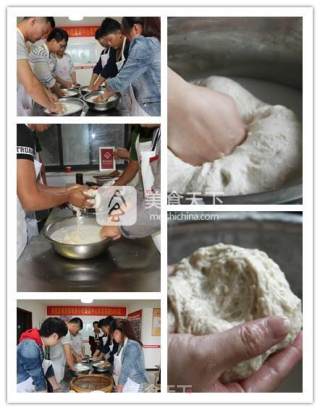
3.
Steaming Liangpi: The next day, remove the water that settles on the dough, and add fresh water according to the local population. After the water is boiled, it can be steamed. Add 1.5 tablespoons of surface water to the small steaming gong (iron sheet, stainless steel), turn it round and evenly, put it flat in boiling water and cover the pot, wait for the pot to open and steam for 3 minutes. After steaming, place it on the cold water and ice it. It is good to take off each piece of Liangpi and apply oil thinly to avoid adhesion between the Liangpi, and the coldpi is steamed when stacked one after another!

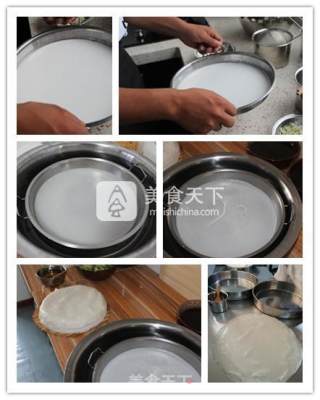
4.
Steamed gluten: In summer, you can use steamed gluten to let the gluten rise automatically for three hours. The higher the temperature, the faster it will rise. Then spread the gluten in a steamer into a circle and steam for half an hour, let it cool after cooking, and cut into small pieces with a knife for later use! In winter, use boiled gluten to take a small piece of gluten, stretch it into a strip of 20-40cm and wind it around 3-5 times on your hand, then turn the circle over, (turn the outer ring into the inner ring) and cook in the pot, boil the gluten The method is very simple. Just boil the gluten directly in water. After the water is boiled, cook it on a low heat for 20 minutes. Take it out and let it cool and tear it into thin strips for later use (about 5CM thin strips). The cooked gluten is fried and eaten. Everything is delicious. .

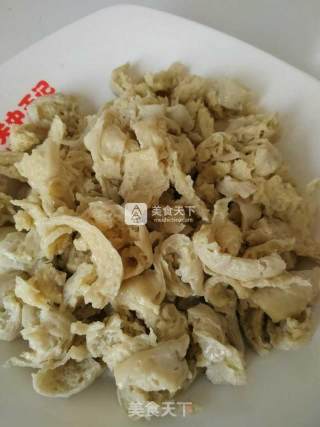
5.
Pour the chili oil and pure rapeseed oil and heat it to 240 degrees, lower to 180 degrees and add white sesame seeds. Pour 140-150 degrees into the chili noodles and stir evenly. Finally, add a little vinegar to stimulate the aroma and cover the lid while it is hot. It is best to make it in advance Let it go for a day so that the color will be redder and the taste will be better!
6.
The beauty of the delicious Liangpi lies in the spoonful of spicy oil, which is regarded as top secret by many businesses! The key point must be good rapeseed oil, good spicy. The quality of spicy peppers is the most important. Qin peppers are different in thickness. (Shaanxi’s Qin peppers are the best, with spicy as the main supplement with fragrance, and Xinjiang’s line peppers are also good)
7.
Cut cucumber into shreds and cold skin into strips. Thickness according to personal preference!
8.
Boil seasoning water: (star anise: 5 g cinnamon bark: 5 g cumin: 3 g grass fruit: 1 bay leaf: 1 g) Put the above aniseed in a cloth bag, add water and boil for 6-8 minutes) 2 , Add a little oil to the bottom of the pot, add ginger and stir fry for a fragrance. 3. Add balsamic vinegar and bring to a boil on low heat. 4. Add water and the aniseed water just boiled. The ratio of balsamic vinegar: water: aniseed water is 1:1:10. Called mixed material water 6. Garlic water: chop garlic into garlic paste and add water
9.
Cold skin preparation: Cold skin: 200 grams of gluten side dishes: 50 grams (bean sprouts/celery/cucumber) Use a larger stainless steel scoop to add the mixture water, garlic water, chili oil, salt, and stir well!
10.
Finished product
11.
Finished product
Tips:
Storage of Liangpi noodle water: store it at a room temperature of about 25 degrees. After washing the noodles in summer, put it in the refrigerator to settle overnight. Pour out the yellow water on it and add clean water; add 6 taels of water for a catty of paste, add cold water
After the gluten is washed out, put the gluten in a basin of clean water, do not touch the air, soak all in the water.
For consultation and more details, please click http://user.qzone.qq.com/980298833/2

